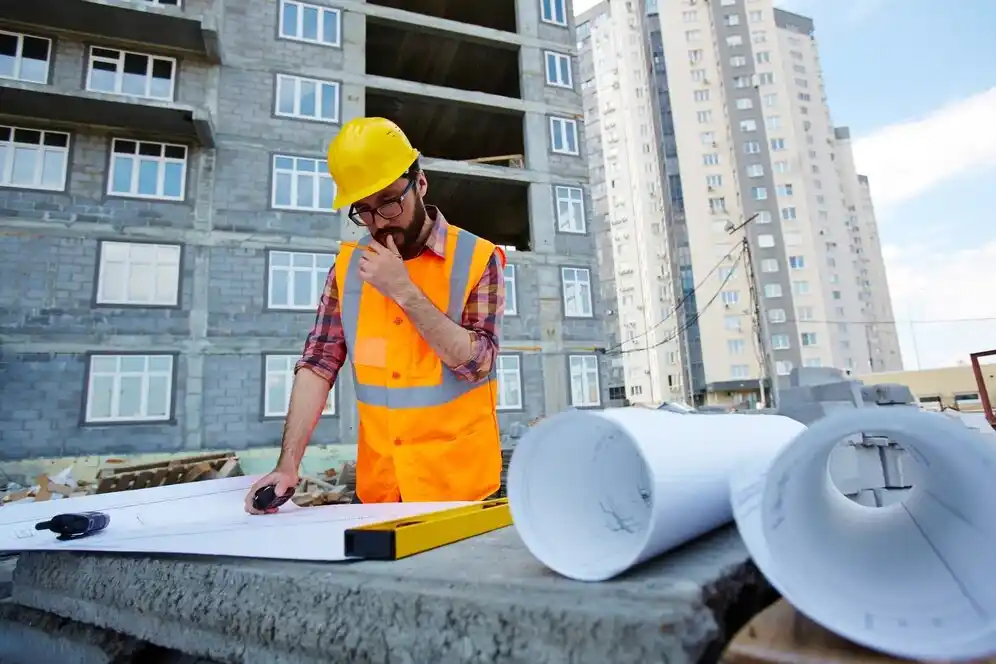varmagroup2021
November 8, 2024
Construction

varmagroup2021
November 8, 2024
Construction project management (CPM) is essential in delivering projects successfully from start to finish. By following specific stages, functions, and risk management practices, CPM helps ensure projects are completed on time, within budget, and meet all quality standards. Let’s explore these core elements in detail.
Each stage in construction project management builds the foundation for the next, guiding projects toward successful completion.
In the initiation phase, managers define the project’s objectives, goals, and budget. Feasibility studies are conducted to assess the practicality of the project. This step is critical to identify potential constraints or financial concerns before proceeding.
Once the project is approved, planning and design come next. Detailed plans are created, covering the timeline, budget, and resources. This phase also includes obtaining permits, drafting designs, and preparing project documentation for stakeholders’ approval.
In the procurement stage, materials, equipment, and subcontractors are sourced. Managers handle the tendering process, contracts, and supplier agreements to secure everything required for the construction phase. Proper procurement ensures the project has quality materials and reliable labor.
The construction phase marks the start of on-site work. Managers oversee daily operations, ensuring that construction follows the plans and adheres to safety protocols. Communication with subcontractors and labor is crucial to keep the project on track.

After construction, the project undergoes final inspections to check if it meets quality standards. Managers address any last-minute fixes, complete the punch list, and hand over the project to the client, fully functional and ready for occupancy.
In the final phase, managers complete any outstanding payments, documentation, and evaluations. This phase also involves a review of the entire project to gather insights and lessons for future projects, marking the official project closure.
Effective construction project management requires specific functions to keep the project organized and moving smoothly.
Scope management defines project boundaries and tasks, preventing scope creep. Managers ensure the project stays aligned with initial goals by managing any changes efficiently and ensuring tasks stay on track.
Time management includes scheduling, milestone tracking, and deadline management. By keeping the project on schedule, managers can prevent costly delays. They also use tools to monitor the timeline and adjust activities to stay on course.
Cost management is essential to prevent budget overruns. Managers plan the project’s budget and track expenses closely, making adjustments when needed to avoid exceeding financial limits, ensuring that funds are allocated wisely throughout the project.
Quality management ensures that the project meets industry standards and client expectations. Regular inspections, testing, and adherence to codes help maintain quality throughout construction, preventing costly rework or delays.
Resource management optimizes the use of labor, materials, and equipment, balancing productivity with efficiency. Ensuring the right resources are available and effectively used prevents downtime and maintains productivity.
Risk management is a proactive process, identifying, analyzing, and mitigating potential risks. By addressing risks early, managers can reduce project disruptions and improve the likelihood of successful completion.
Effective communication keeps all parties informed and reduces misunderstandings. Managers coordinate regular updates and maintain open channels to resolve issues quickly, keeping everyone on the same page.
Contract management involves overseeing agreements with subcontractors and suppliers. Ensuring compliance with contract terms helps avoid disputes and keeps relationships positive, which is crucial for timely, quality work.
“Quality means doing it right when no one is looking.”
“Construct with purpose, design with passion, build with integrity.”
Risk management is vital to construction project management, helping teams anticipate and control challenges that could affect the project’s success.
The first step in risk management is identifying potential risks. These may include delays, budget overruns, safety concerns, or environmental issues. Identifying these risks early is critical to creating effective mitigation strategies.
Once identified, risks are assessed based on their likelihood and impact. This process allows managers to prioritize risks and focus on those with the highest potential to disrupt the project, ensuring that resources are allocated effectively.
Risk mitigation involves developing strategies to reduce the chances of risks occurring. Examples include adding contingency budgets, creating backup plans, and implementing safety protocols, all of which can help minimize potential setbacks.
Continuous risk monitoring allows managers to stay aware of evolving risks. By tracking risks throughout the project, managers can take immediate action if new risks arise or existing ones change, helping to avoid costly disruptions.
Documenting and reviewing risks at the project’s close provides valuable insights for future projects. By learning from past experiences, managers can improve risk management strategies and better prepare for future projects.
Construction project management isn’t just about planning and execution; it’s about managing every aspect, including resources, time, cost, quality, and risks. Effective CPM provides many benefits:
Proper planning and time management keep the project on schedule, reducing costly delays.
Effective cost and risk management prevent budget overruns, saving clients money.
With quality management in place, projects meet regulatory standards and client expectations.
By managing risks proactively, CPM reduces the chances of accidents, delays, or financial losses.
Strong communication keeps stakeholders informed, reducing misunderstandings and promoting teamwork.
Construction project management is an intricate process that requires balancing stages, functions, and risks. By mastering these elements, construction managers can deliver successful projects on time, within budget, and with high-quality standards. Proper CPM practices not only lead to better project outcomes but also provide insights that improve the management of future projects.
Incorporating effective risk management practices into each stage of construction project management is essential for long-term success in the industry.

Varma Group epitomizes entrepreneurial excellence, transforming ideas into thriving businesses” We are dedicated to establishing a trademark synonymous with quality products and cutting-edge technology, fostering sustainable growth.
Copyright © 2024 Varma Group. All rights reserved.